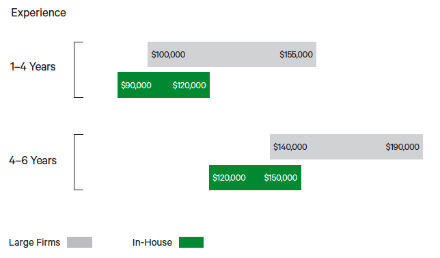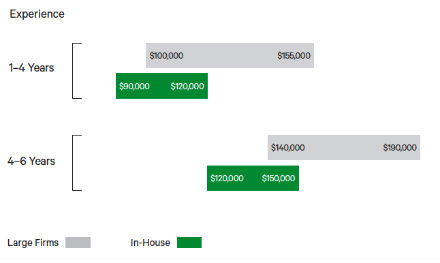Full house
The number of in-house lawyers in Ontario has leapt by more than 50 percent over the last decade according to LSUC.
(Note: the Law Society’s stats don’t include those working in government or education)

Still bill
When you move in-house you get to kiss billable hours goodbye, right? Maybe not.
Intact Insurance recently implemented a docketing system for its in-house team of 120 lawyers to help the company better determine how much its external lawyers should be charging for legal services. “We can get a much more solid comparison now that we’re docketing ourselves,” says Intact’s Stuart Wright.
Lawyers may not be overly thrilled at the prospect of docketing — even the brand of “soft docketing” in place at companies such as Intact. “It’s not about big brother watching; it’s more to give us some information so we can compare ourselves to others.”
Show me the money
Perks and bonuses aside, here’s how Toronto in-house salaries stack up against those in private practice. (Source: ZSA Legal Recruitment)

Richer than you think
“In-house earnings have definitely shot up in the last five years,” says Warren Bongard, president of ZSA Legal Recruitment. “Companies are becoming a bit more creative. There’s been some improvement on base salary, but more significantly on the variable components applied to the base, such as bonuses, pensions and stock options to get someone to a higher overall number.” Bongard says that all these extras can boost in-house take-home pay by 20 to 50 percent.
This story is part of our in-depth guide to in-house counsel. Click here to read the next section, featuring advice from an in-house lawyer who’s now a VP at CIBC.


